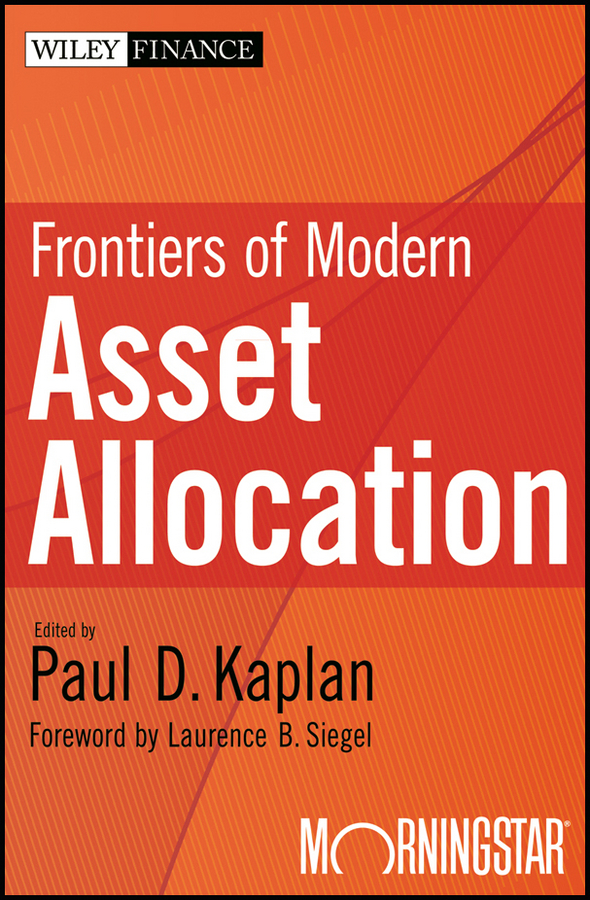Электронная книга: Paul Kaplan D. «Frontiers of Modern Asset Allocation»

|
Innovative approaches to putting asset allocation into practice Building on more than 15 years of asset-allocation research, Paul D. Kaplan, who led the development of the methodologies behind the Morningstar Rating(TM) and the Morningstar Style Box(TM), tackles key challenges investor professionals face when putting asset-allocation theory into practice. This book addresses common issues such as: How should asset classes be defined? Should equities be divided into asset classes based on investment style, geography, or other factors? Should asset classes be represented by market-cap-weighted indexes or should other principles, such as fundamental weights, be used? How do actively managed funds fit into asset-class mixes? Kaplan also interviews industry luminaries who have greatly influenced the evolution of asset allocation, including Harry Markowitz, Roger Ibbotson, and the late Benoit Mandelbrot. Throughout the book, Kaplan explains allocation theory, creates new strategies, and corrects common misconceptions, offering original insights and analysis. He includes three appendices that put theory into action with technical details for new asset-allocation frameworks, including the next generation of portfolio construction tools, which Kaplan dubs«Markowitz 2.0.» Издательство: "John Wiley&Sons Limited (USD)"
ISBN: 9781118173015 электронная книга Купить за 6178.75 руб и скачать на Litres |
Другие книги схожей тематики:
| Автор | Книга | Описание | Год | Цена | Тип книги |
|---|
См. также в других словарях:
china — /chuy neuh/, n. 1. a translucent ceramic material, biscuit fired at a high temperature, its glaze fired at a low temperature. 2. any porcelain ware. 3. plates, cups, saucers, etc., collectively. 4. figurines made of porcelain or ceramic material … Universalium
China — /chuy neuh/, n. 1. People s Republic of, a country in E Asia. 1,221,591,778; 3,691,502 sq. mi. (9,560,990 sq. km). Cap.: Beijing. 2. Republic of. Also called Nationalist China. a republic consisting mainly of the island of Taiwan off the SE coast … Universalium
India — /in dee euh/, n. 1. Hindi, Bharat. a republic in S Asia: a union comprising 25 states and 7 union territories; formerly a British colony; gained independence Aug. 15, 1947; became a republic within the Commonwealth of Nations Jan. 26, 1950.… … Universalium
international relations — a branch of political science dealing with the relations between nations. [1970 75] * * * Study of the relations of states with each other and with international organizations and certain subnational entities (e.g., bureaucracies and political… … Universalium
Europe, history of — Introduction history of European peoples and cultures from prehistoric times to the present. Europe is a more ambiguous term than most geographic expressions. Its etymology is doubtful, as is the physical extent of the area it designates.… … Universalium
United States — a republic in the N Western Hemisphere comprising 48 conterminous states, the District of Columbia, and Alaska in North America, and Hawaii in the N Pacific. 267,954,767; conterminous United States, 3,022,387 sq. mi. (7,827,982 sq. km); with… … Universalium
